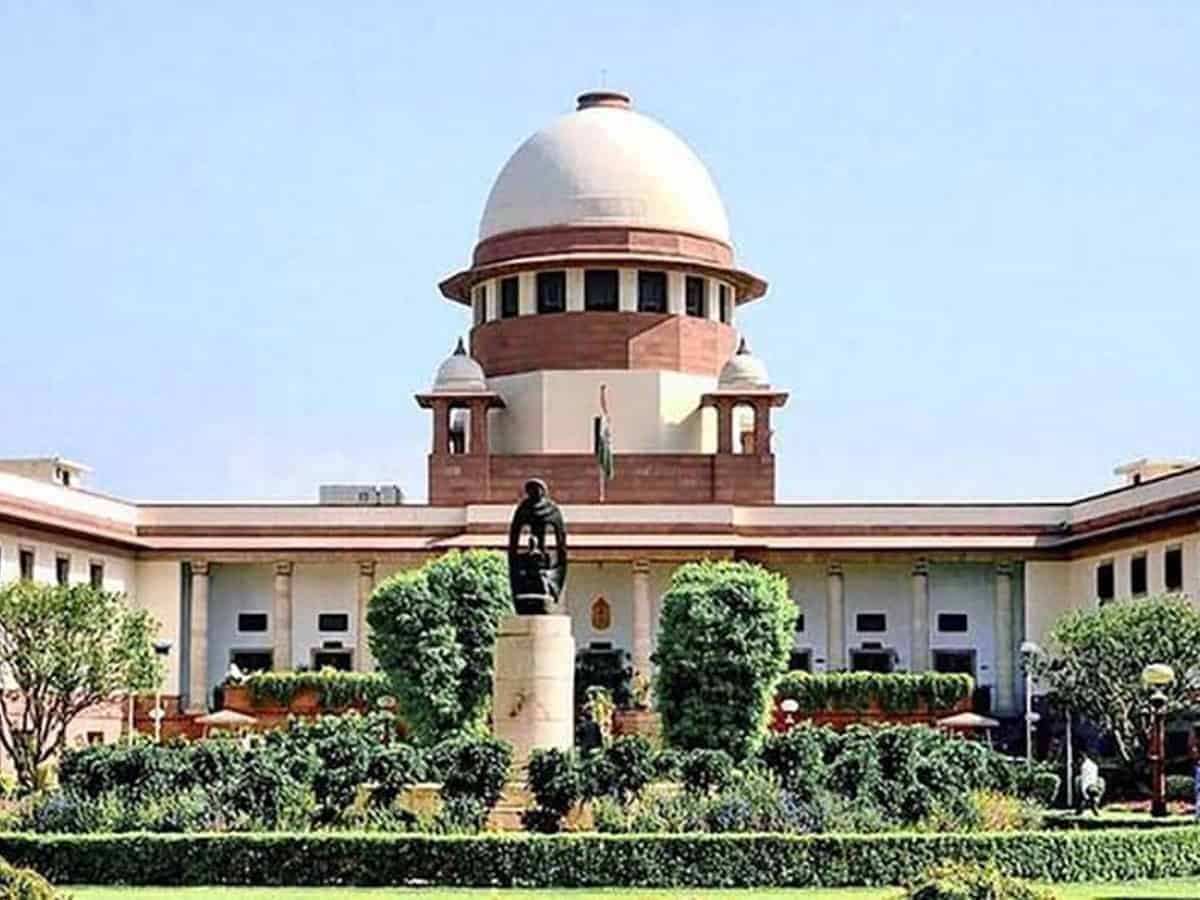
New Delhi: The Supreme Court on Monday said it wanted to “tighten up” the self-regulatory mechanism of monitoring TV news channels and granted four more weeks to News Broadcasters and Digital Association (NBDA) to come up with fresh guidelines.
A bench comprising Chief Justice of India D Y Chandrachud and Justices J B Pardiwala and Manoj Misra took note of submissions that the NBDA was in consultation with its present and former chairpersons, Justice (retd) A K Sikri and R V Raveendran, respectively, for framing fresh guidelines.
Senior advocate Arvind Datar, appearing for NBDA, sought four weeks to come up with fresh guidelines.
Appearing for the Centre, Solicitor General Tushar Mehta said the Union government has already formulated a three-tier mechanism, the first of which is self-regulation.
Senior advocate Mahesh Jethmalani, appearing for the News Broadcaster Federation of India (NBFI), said it was the only regulatory body registered with the Centre as per the 2022 rules, unlike NBDA. He said that NBFI be also permitted to file its own self-regulations.
“We want the self-regulatory mechanism to be tightened up,” the CJI said, adding that suggestions and guidelines are welcome.
“We cannot sort out your ideological differences (NBDA and NBFI) here. We do not want this plea to get lost in the cacophony of rival organisations. We will see their regulations and then see yours as well,” the CJI said and fixed the plea for hearing after four weeks.
Earlier, the top court had found fault with the existing self-regulatory mechanism to monitor TV news channels and sought the Centre’s response, saying it wanted to make it “more effective”. The bench had made clear it did not want to impose any censorship on media.
The top court, however, had stressed on the need for having an effective self-regulatory mechanism and said some channels went “berserk” during the coverage of actor Sushant Singh Rajput’s death case.
It had then asked the NBDA to take inputs from its present chairperson Justice Sikri (retd) and his predecessor Justice Raveendran (retd), both former Supreme Court judges. The apex court had noted the maximum penalty which can be imposed on a TV news channel for violation of the self-regulatory mechanism is just Rs 1 lakh, which was fixed way back in 2008.
It was hearing a plea filed by the NBDA against the January 2021 observations by the Bombay High Court.
The high court had said media trials amounted to contempt of court and urged the press not to cross the proverbial “Lakshman Rekha”, as it found the coverage of actor Sushant Singh Rajput’s death case by some news channels as “contemptuous”.
It had observed that existing self-regulatory mechanisms could not take the character of a statutory mechanism.
As per information available on the NBDA’s website, it represents private television news, current affairs and digital broadcasters and is the collective voice of news, current affairs and digital broadcasters in India. It says the NBDA currently has 27 leading news and current affairs broadcasters (comprising 125 news and current affairs channels) as its members.
The apex court issued a notice to the Centre and others seeking their responses on the association’s plea.
“We are of the considered view that it would be necessary for this court to consider as to whether steps, which have already been taken for constituting a self-regulatory mechanism, are to be strengthened,” the bench said.



